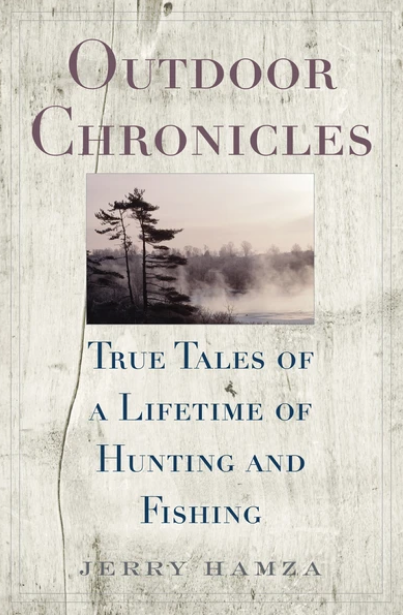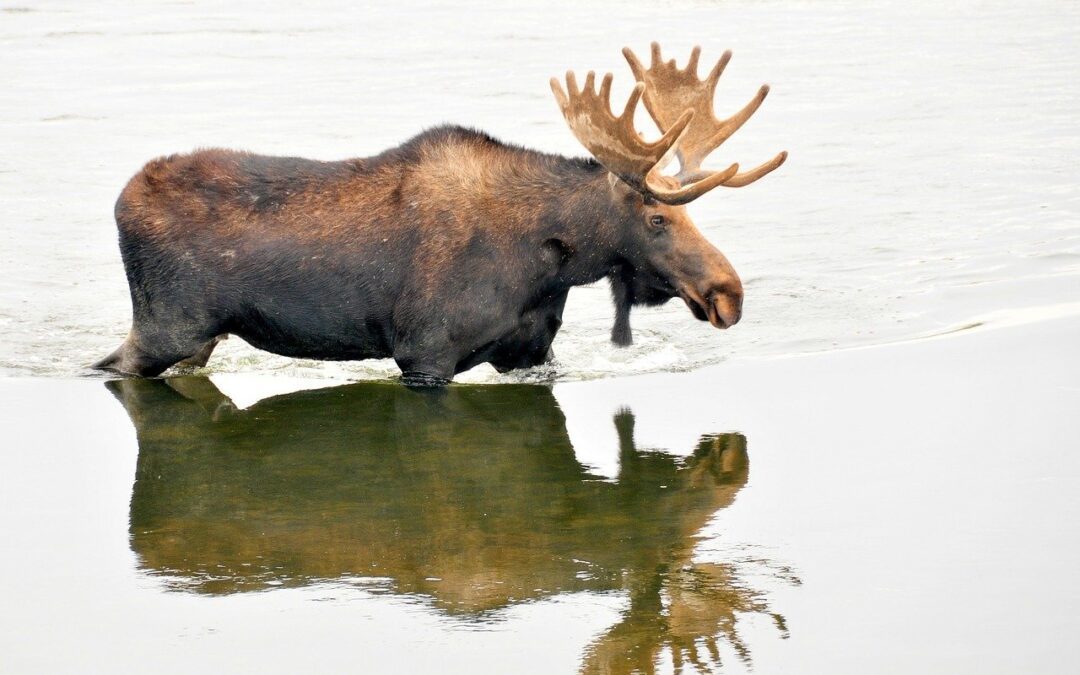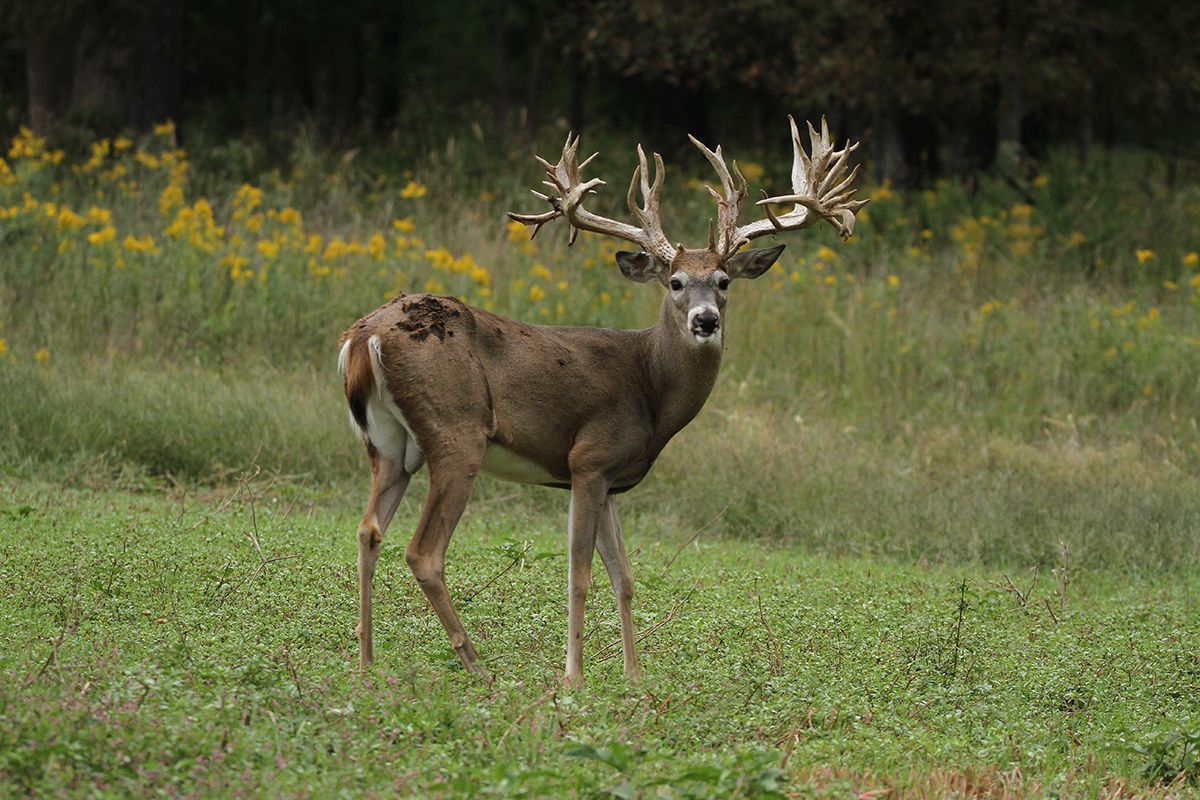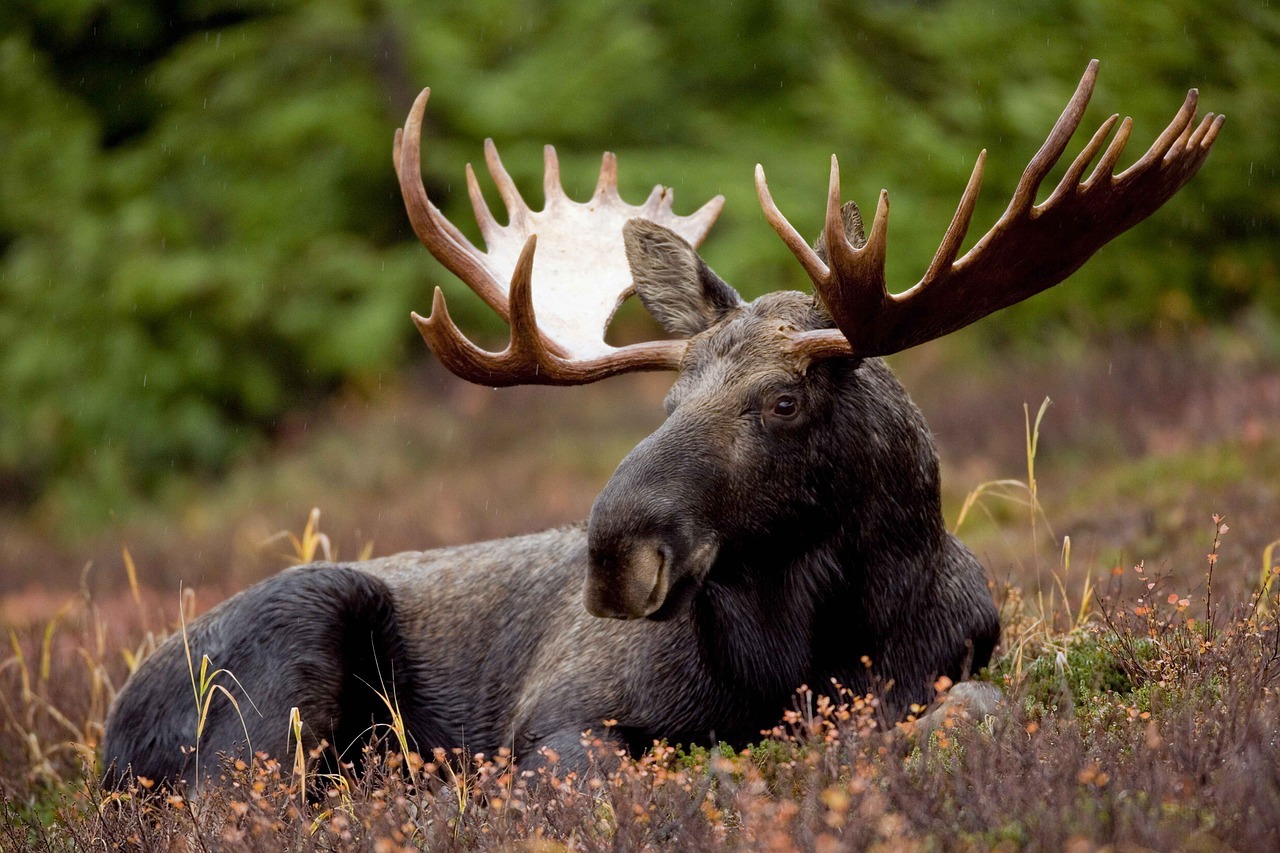The deadline to apply for a Vermont moose hunting permit is July 8.
Moose permit applications are available on the Vermont Fish & Wildlife Department’s website for the hunt limited to Vermont’s Wildlife Management Unit (WMU) E in the northeastern corner of the state.
“Moose density in WMU E is more than one moose per square mile, significantly higher than any other part of the state,” said Nick Fortin, Vermont Fish and Wildlife’s biologist in charge of the moose project. “Moose densities greater than one per square mile support high numbers of winter ticks which negatively impact moose health and survival.”
The Fish and Wildlife Department partnered with University of Vermont researchers to conduct a study of moose health and survival in WMU E. The results of this study, in which 126 moose (36 cows, 90 calves) were fitted with GPS tracking collars, clearly showed that chronic high winter tick loads have caused the health of moose in that part of the state to be very poor. Survival of adult moose remained relatively good, but birth rates were very low and less than half of the calves survived their first winter.
“Research has shown that lower moose densities, like in the rest of Vermont, support relatively few winter ticks that do not impact moose populations,” said Fortin. “Reducing moose density decreases the number of available hosts which in turn decreases the number of winter ticks on the landscape. The goal is to improve the health of moose in WMU E by reducing the impact of winter ticks.”
The department will issue 55 either-sex moose hunting permits in WMU E for the moose seasons this October, which is expected to result in the harvest of 30-35 moose.
Lottery applications for hunting permits are $10 for residents and $25 for nonresidents. Winners of the permit lottery will purchase resident hunting permits for $100 and nonresident hunting permits for $350.
Nonresident applicants are cautioned that travel restrictions could be extended into the fall moose hunting season. Nonresident applicants are encouraged to consider this before applying as permits issued in 2020 will not be held to the following 2021 hunting season.
Hunters who held a permit within the past five years are not eligible to apply for a permit or to buy a bonus point. Also, although a “bonus point freeze” was in place for the 2018 and 2019 moose seasons, due to limited or no moose permits being available for those years, that is no longer in place and applicants must continue to annually submit a moose permit application if they wish to retain their past bonus points.
By law, five permits will be available to Vermont military veterans, three permits will be auctioned in accordance with regulations, and up to three permits will be available for “Special Opportunity” recipients with life-threatening illnesses.
 We hold a great affection for the deep tradition of American storytelling. The ability to spin a yarn that can hold our attention and provide a gentle direction for life is something that has been with us for a long time. The Celebrated Jumping Frog of Calaveras County” by Mark Twain or Ernest Hemingway’s Nick Adams stories hold us with their gentle wit and carry us away for just a little while. In Outdoor Chronicles, Jerry Hamza takes up the gauntlet of the storyteller to take readers away for a little fun. There are already plenty of how-to fishing and outdoor books, and this is not one. Hamza’s stories will not make you a better caster or shooter, but they will make you want to spend more time fishing or hunting.
We hold a great affection for the deep tradition of American storytelling. The ability to spin a yarn that can hold our attention and provide a gentle direction for life is something that has been with us for a long time. The Celebrated Jumping Frog of Calaveras County” by Mark Twain or Ernest Hemingway’s Nick Adams stories hold us with their gentle wit and carry us away for just a little while. In Outdoor Chronicles, Jerry Hamza takes up the gauntlet of the storyteller to take readers away for a little fun. There are already plenty of how-to fishing and outdoor books, and this is not one. Hamza’s stories will not make you a better caster or shooter, but they will make you want to spend more time fishing or hunting.
This book is a collection of outdoor stories wrapped in the human condition. They were written with an eye toward honesty and cynicism. They will make you laugh out loud, and you will want to carry them with you wherever you go. If this book goes missing, it’s a sure thing that, when you do find it, it will be in the possession of a member of your household, regardless of their interest in casting a fly. The stories cover the gamut from a fishing trip to northern Canada to a little stream that was actually better than remembered, to how the baby boomers almost trampled a sport to death, to a solitary trek along railroad tracks during a cold, dark, and dreary February, and many more. Buy Now




